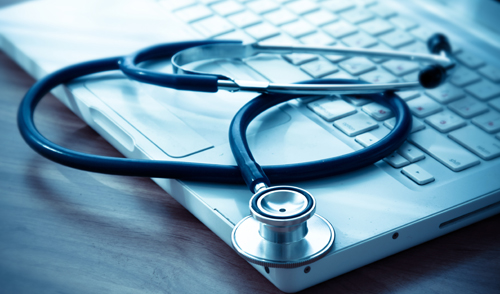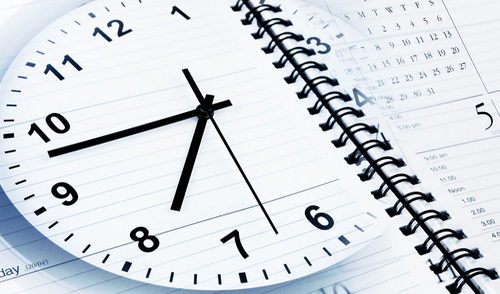Adults having a sleep study
The sleep study is performed at a sleep lab in a small office building. You will need to arrive by about 9 pm and will usually be done with the sleep study by 6 am. You will be told the exact time for arrival when you are scheduled. You will sleep in a private room, much like a small bedroom in your own home. A friend or family member may come along, but cannot stay overnight with you. Some people have trouble falling asleep for the study. If you take a sleeping pill, you may bring the medication with you and take it prior to the test.
Children having a sleep study
Your child will need to arrive by about 9 pm and will usually be done with the sleep study by 6 am. You will be told the exact time for arrival when you are scheduled. Your child will sleep in a private room, much like a small bedroom in your own home. For children undergoing a sleep study (under age 18) a responsible adult will need to stay all night. The parent or adult will either sleep in a recliner in the same room, in another bedroom (if available), or in a recliner in a waiting area, depending on the facility and age of the child. Parents are not allowed to sleep in the same bed as the child. It is important to let your child know that the test is just to monitor his/her sleeping, there are no shots, and you will be there for them, if needed.
Before the sleep study
- You should take your usual medications on the day of the study. You should also bring any medications that you usually take, to the sleep lab.
- You should bring with you a list of your medical problems and any medications that you take.
- Avoid napping
- Avoid caffeine and alcohol
- Take a shower and wash your hair. Do not apply skin lotions, sprays, or oils to your hair.
- Eat dinner before you come to the sleep lab. Bring a snack with you, if you need one before bedtime.
What to bring for the test
- Bring what will make you comfortable such as a robe, slippers, and personal hygiene items (toothbrush, toothpaste, comb, brush, etc) If you desire, you may bring your own pillow.
- You should bring something to sleep in such as pajamas or a nightgown
- Bring clothing for the next day.
- Bring any medication that you normally take. In particular, if you have difficulty falling asleep at night, you should bring your sleeping pills. You may take a sleeping pill, but you should notify the technician, when you take it.
What to expect during the sleep study
A sleep technologist will meet you and have you complete some health questionnaires. You will then change into your night clothes. The technician will then attach small sensors on your head and body with tape and cream. The sensors will be plugged into a machine that will monitor your sleep. There will be sensors on your head and around the eyes to monitor your sleep and whether you are getting into deep sleep, on your finger to measure the oxygen level in your blood, sensors on your chest to measure your EKG (heart beat), an elastic belt around your chest and abdomen to measure your breathing effort, in front of your nose to measure breathing, on your legs to measure sudden leg or body movements, as well as a position sensor to know what position you are sleeping in and a sensor to record your snoring. An infrared camera will record any abnormal body movement (such as seizures or sleep walking). The technologist will stay in a nearby room monitoring these items on a computer, and will be available to re-attach any sensors if they come loose. If you need to use the restroom, the sensors can be easily unplugged. There is an intercom system so you can talk to the technologist, if needed.
What to expect during a CPAP or BiPAP study
If you have sleep apnea, a device called Continuous Positive Airway Pressure (CPAP) or BiLevel Positive Airway Pressure (BiPAP) may be used. CPAP applies constant air pressure over your nose or mouth and can help you breath and improve your sleep. BiPAP applies a higher pressure as you inhale and a lower pressure as you exhale. CPAP may be applied on a second night of testing or sometimes during the same night. The air pressure of the CPAP machine helps overcome gravity and helps keep your breathing passages open. If the air pressure is too low, the machine will not be effective and if too high, it may not be tolerated, or may make the problem worse. The CPAP study allows us to adjust the CPAP machine in order to find the correct pressure setting for you. During the CPAP or BiPAP study, you will have all of the same sensors in place as a diagnostic sleep study, plus the mask device in order to improve your breathing. The pressure is changed by remote control, beginning at a low setting and increasing the pressure until your breathing and oxygen are normal, and the sleep disruptions and snoring are gone.
After the sleep study
Immediately after the diagnostic or CPAP/BiPAP sleep study, you should go home and take a long hot shower. The adhesives that are used to attach the monitoring wires to your head are very sticky and are hard to get out without a hot shower. In addition, you may not feel as rested due to all of the monitors on you and you may wish to take a short nap before starting your day.
Getting your results
The data collected from the study will be analyzed by another technologist and a physician. The results of the testing will usually be sent to your physician within a week. You should contact your physician for a follow up appointment to discuss treatment options. If you are diagnosed with sleep apnea and your physician recommends CPAP, you may receive a call from the sleep lab to schedule a CPAP study.
Other concerns
If you have any questions at any time about this procedure, please feel free to notify our scheduling coordinator at 404-705-0855 or any of the sleep technologists and they will be more than happy to assist you. If you need directions to the facilities, please see the directions page or call for more information:
Scheduling coordinator (8:30 am-5:00 pm): 404-705-0855
Dunwoody sleep lab (8:30 pm-6:00 am): 404-255-4968
Alpharetta sleep lab (8:30 pm-6:00 am): 770-360-5999



